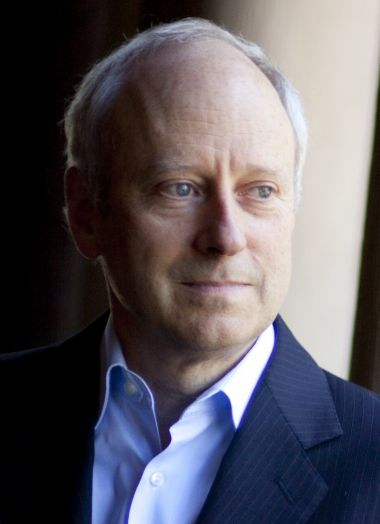Public life needs a return to 'humility'

Philosopher Michael Sandel called for a restoration of humility to civil discourse at the Theos annual lecture on Tuesday night.
Sandel, the author of The Tyranny of Merit: What's Become of the Common Good, delivered the lecture online via Zoom, with hundreds in attendance.
He said political discourse had become "polarised" and "rancorous", while the politics of the common good had given way to a "meritocratic measure of success" that divides society into winners and losers.
"Our civic life isn't going very well," he said.
"What passes for public discourse consists too often of shouting matches where we don't really listen to one another, much less engage with the arguments and the moral convictions that citizens bring to public life.
"We live in polarised times."
He warned against the "tyranny of merit" in which people believe that rich and poor alike have both received what they deserve, ignoring factors like where they were born and the families they were born into.
In such a society, people strive to be "self-made" and money becomes the "measure" of merit, he argued.
The "backlash against the dark side of meritocracy", Sandel continued, "goes a long way to explaining the triumph of Trump", but also the vote in favour of Brexit in the UK and the emergence of hyper nationalism across the world.
The struggle with meritocracy can also be seen in the Church, though, he contended, for example, in the tension between salvation by faith on the one hand, and the expectation to conform to sacraments and traditions like baptism, prayer and attending services.
When Christians give into the idea of merit, there is the temptation to "look down with disdain" on those they regard as more sinful.
"The humility prompted by the helplessness in the face of grace gives way to the hubris prompted by belief in one's own merit," he said.

In society, the "dark side of merit" leads to the less fortunate feeling "that the elites look down on them".
Whether in the church or in society, the idea of merit makes it harder to feel "indebted" and "grateful", he said, and increases the "hubris among the winners".
While the winners believe in their "own superior virtue", the "losers" are denigrated, eventually triggering a "backlash against the elites".
But he added that he was not seeking to give solutions in policy terms but to offer a moral language and framework for the common good, one in which the successful acknowledge the "luck and good fortune that helped them on their way".
He said he wanted to see society "recognise our indebtedness to family, neighbourhood, teachers, community, country, for our success".
"And this means deploying this moral vocabulary as a public vocabulary, whether luck, fortune, grace, mystery and maybe above all humility, because what we've lost as a civic virtue is an orientation towards humility."
He called for a "different kind of moral vocabulary" that could "speak to grievances" and offer an alternative to "upward mobility and getting a university degree".
He said he wanted to see a moral vocabulary "that can at least gesture toward a better kind of politics; a politics that aims at the common good; a less rancorous, more generous way of conceiving and conducting our public life".











